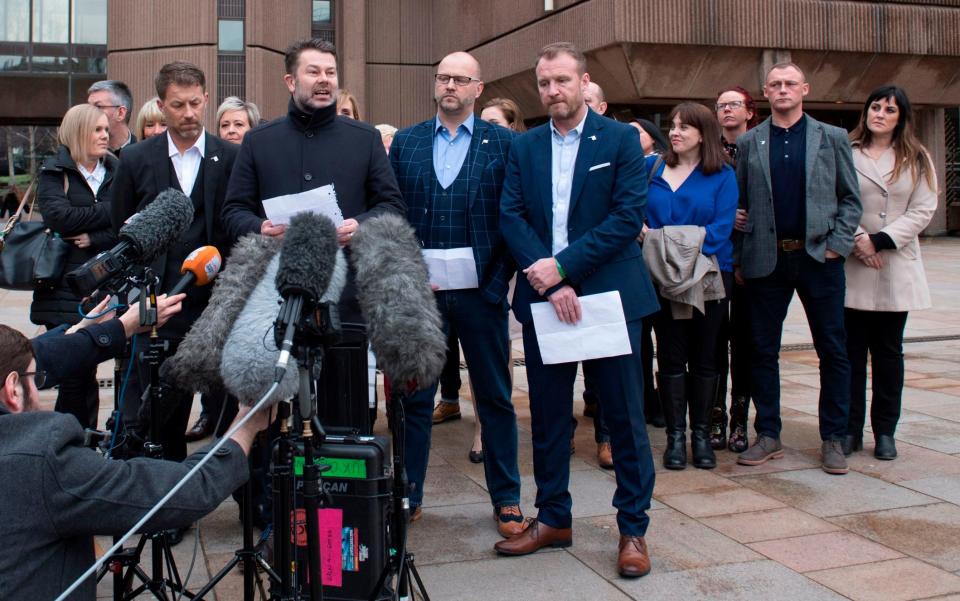Why it is all our duty to prioritise child safety

One of the beauties of sport is that it populates its landscape with young people dreaming of making it into the big time. Among its darkest aspects is the violation of those dreams by predators who see aspiration as a vulnerability they can exploit.
From the depravity of Barry Bennell right down to the spiv who tries to get rich on the back of a child’s talent, young people are in need of protection by families, institutions, vigilant individuals and of course the rule of law, which has caught up with Bennell – jailed at Liverpool Crown Court for 30 years for abusing 12 young footballers between 1979 and 1991.
Those protective structures failed abysmally for a generation of children who were defenceless against Bennell’s brazen and routine sex crimes, which, as the court heard, occurred on an “industrial scale.” As we know from the Jimmy Savile case and others, this level of sexual criminality is not possible unless those with the power to stop it are blinded by the perpetrator or place their own self-interest first.
In this case, parts of the Football Association, Manchester City and Crewe Alexandra – in that period – refused or failed to see Bennell’s interest in scouting and coaching was incidental to his main reason for working in football. His chief purpose was to gain access to children. He played a double game to satisfy his appetites, conning the clubs into thinking he was a talent-spotter par excellence and the children and their families into believing he held the key to a future in the game.
The NSPCC’s statement after sentencing pointed out that Bennell “ruthlessly preyed on the hopes and aspirations of young footballers who believed he held the key to their dreams”.
Procedures are much tighter in football now. Awareness has improved exponentially since the Seventies, Eighties and Nineties. Yet, as the many recent welfare-in-sport scandals have demonstrated, there is still a phase in which young people are vulnerable if they have not attained full adulthood or the power that comes with success.
That stage of life, where children are most open to being exploited, is the one that requires the most careful policing, because sex offenders are drawn to professions in which they have access to, and can exploit the ambitions of, young people. Thus it falls not only to governing bodies but also coaches, parents – all of us, in fact – to recognise the danger signs and intervene, as opposed to merely muttering our concerns.
From Bennell’s perspective, reptilian deceit was effective. One member of City’s staff called him “the star-maker”. Concerns raised by Len Davies at City and Hamilton Smith at Crewe gained no real traction. Now, a further 86 alleged victims have reportedly come forward, which accentuates one of the truly shocking features of this tragedy: the impunity with which Bennell abused children, and the breadth of his crimes, in homes, holiday camps, football clubs and even on the pitch at Maine Road.
The FA have a responsibility to show negligence and complicity have consequences
Only the victims who came forward to testify can know how long the “relief” will last. And relief was certainly the most conspicuous first response. No quest for justice – even one so obviously grounded in fact – guarantees the kind of outcome that exposed Bennell’s sadism and perversion.
The first emotion, one assumes, is one of vindication. The lie has been broken. An expectation now, however, is that thoughts will turn quickly to those who excused Bennell’s paedophilia, looked the other way, or facilitated it in ways that require them to be held to account.
Lord Carlile, one of the country’s leading legal figures, has said Bennell’s behaviour was “brushed under the carpet” by Crewe.
These failures, where they existed, cannot be marked down as unfortunate accidents. The victims are entitled to justice from football as well as the legal system. The FA bear a responsibility in their forthcoming report to show that negligence and complicity have consequences, not least for the FA of that time.
The societal nature of this crime was grimly apparent when a “Cambridge-educated” geophysicist from a “privileged” background, Matthew Falder, was jailed for 32 years at Birmingham Crown Court after admitting 137 offences including blackmail, voyeurism, encouraging child rape and sharing indecent images – on the same day Bennell began his latest prison sentence.
Football is not uniquely blighted by child sex abuse, and its safeguards now are better. But in all cases it needs to think first of child protection, of child welfare, and punish those who have failed in that duty.

